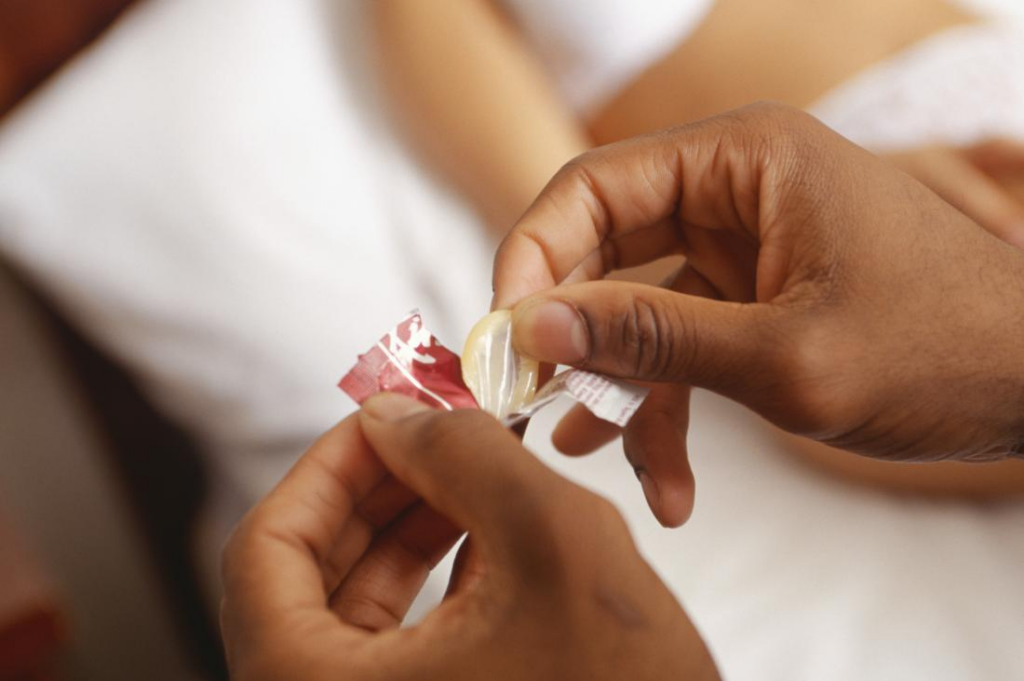When it comes to exploring new dimensions of intimacy, many people wonder about the safety of anal sex. It’s a topic wrapped in curiosity, myths, and a fair share of misconceptions. So, if you’re asking yourself whether anal sex is safe, you’re not alone. Understanding the ins and outs of this experience can pave the way for a more informed and enjoyable exploration.
Picture it like this, diving into a new adventure requires some preparation and knowledge. Just as you’d check your gear before a hike, ensuring safety in anal sex means being aware of the right practices and precautions. With the right approach, communication, and safety measures, you can navigate this intimate experience with confidence and care. Let’s break down what you need to know to ensure a safe and pleasurable experience.
Also Read: Simple Sex Positions For Beginners
What Is Anal Sex?

Anal sex involves stimulating the anus, either with fingers, toys, or through penetration. While it may be a new experience for some, it’s important to understand that it can be a safe and enjoyable activity if approached the right way. It refers to any sexual activity involving the anus, including penetration by a penis, fingers, or toys. It’s an intimate act that requires both partners to be fully comfortable and consenting.
Also Read: nonveg joke
Common Risks Associated with Anal Sex

While anal sex can be a pleasurable experience, it also comes with certain risks that need to be understood. By being aware of these risks, you can take steps to reduce them and ensure that the experience is safe and enjoyable for both partners.
Increased Risk of STIs
The lining of the anus is delicate and can tear easily during penetration, increasing the risk of sexually transmitted infections (STIs), such as HIV, gonorrhea, and chlamydia. Using condoms and practicing safe sex can help reduce this risk.
Tears and Bleeding
Since the anus does not stretch as easily as the vagina, it’s more prone to tears, especially if penetration is too forceful or not properly lubricated. These small tears can lead to discomfort, bleeding, and an increased risk of infection. To avoid this, it’s important to go slow and use plenty of lubrication.
Also Read: Sex toys at home
Fecal Bacteria and Infections
The rectum naturally contains bacteria, and during anal sex, there’s a chance these bacteria can be introduced to your partner’s genitals or other body parts. This can lead to urinary tract infections (UTIs) or other bacterial infections. Cleaning the area before sex and using protection helps reduce this risk.
Loss of Bowel Control
Repeated or aggressive anal penetration can sometimes weaken the muscles around the anus, leading to temporary or long-term issues with bowel control. To avoid straining these muscles, it’s important to be gentle and allow the body to adapt gradually.
Prolapse Risk
In rare cases, especially with frequent or rough anal sex, there’s a risk of rectal prolapse, where part of the rectal wall slides out of place. While this condition is rare, it highlights the importance of being cautious and not overdoing it.
Also Read: Dirty comics
Pain and Discomfort
Anal sex can sometimes cause pain, especially if it’s done too quickly or without enough lubrication. If you or your partner experience pain, it’s crucial to stop and address it rather than push through. The key to avoiding discomfort is patience and communication.
Myth-Busting: Misconceptions about Anal Sex

There are a lot of myths and misconceptions surrounding anal sex, which can create confusion and fear. Let’s clear up some of the most common misunderstandings and set the facts straight.
“Anal Sex is Always Painful”
Many people believe that anal sex is inherently painful. While discomfort can happen if it’s rushed or done without proper preparation, anal sex doesn’t have to hurt. With enough lubrication, communication, and taking it slow, it can be a comfortable and even pleasurable experience for both partners.
Also Read: Sexy stories
“Only Gay Men Engage in Anal Sex”
This is a common misconception. Anal sex is not limited to one sexual orientation. People of all genders and orientations can and do engage in it. It’s about personal preference and enjoyment, not about one’s sexual identity.
“Anal Sex Leads to Permanent Damage”
Some people think that engaging in anal sex will result in long-term damage to the body. This isn’t true. While rough or frequent anal sex without proper care can cause issues like tears or discomfort, most of the time, when done correctly and safely, there are no long-term health problems.
“It’s Unhygienic and Always Messy”
There’s a belief that anal sex is always messy, but that’s not necessarily the case. With proper preparation, like cleaning the area beforehand, the experience can be clean and hygienic. Using condoms and staying mindful of hygiene can also help ensure a smooth experience.
Also Read: Car sex positions
“You Don’t Need Lube for Anal Sex”
Some think that lubrication isn’t necessary, but the anus doesn’t self-lubricate like the vagina. This means that lube is essential to reduce friction, make penetration smoother, and minimize the chance of discomfort or injury.
“Anal Sex Means a Lack of Respect for Your Partner”
This is a harmful stereotype that suggests that anyone who wants to engage in anal sex doesn’t respect their partner. In reality, as long as both partners are consenting, communicating, and enjoying themselves, anal sex can be a respectful and mutually pleasurable experience.
“You Can’t Get Pregnant from Anal Sex”
While pregnancy from anal sex is highly unlikely, if semen gets near the vaginal opening, there’s a very small chance that sperm could enter the vagina and lead to pregnancy. So, it’s still important to be mindful of this when engaging in any sexual activity.
Also Read: Couch sex positions
Is Anal Sex Safe? Key Safety Measures

If you’re considering anal sex, taking proper precautions can make the experience more enjoyable and reduce potential risks. Here are some essential safety measures to keep in mind:
Use Plenty of Lubrication
The anus does not produce natural lubrication like the vagina, so using a generous amount of water-based or silicone-based lubricant is crucial. This helps reduce friction, making the experience more comfortable and minimizing the risk of tearing.
Start Slow and Communicate
Begin with gentle touches and gradual penetration. Communication between partners is key—discuss what feels good, what doesn’t, and any adjustments that might be needed. This helps ensure both partners are comfortable and enjoying the experience.
Practice Good Hygiene
Before engaging in anal sex, clean the area thoroughly. Washing the anus and hands can help reduce the risk of infections. Some people prefer to use enemas for additional cleanliness, but this is optional and should be done gently to avoid irritation.
Also Read: Sex positions for small penis
Use Protection
Condoms are essential during anal sex to prevent the spread of sexually transmitted infections (STIs) and to keep things clean. Using a new condom for anal sex also helps avoid transferring bacteria to other parts of the body.
Avoid Rushing
Take your time and be patient. Rushing can lead to discomfort or injury. Allow the muscles to relax and get accustomed to the sensation. Gradual penetration helps prevent any painful experiences and ensures a more enjoyable encounter.
Monitor for Pain or Discomfort
Pay attention to any signs of pain or discomfort. If either partner feels pain, it’s important to stop and reassess. Pain can be a sign that something isn’t quite right, and addressing it promptly can prevent further issues.
Also Read: Weird sex rituals
Aftercare
After anal sex, take a moment for aftercare. This includes cleaning up and checking in with each other about how the experience felt. Taking care of any minor discomforts or concerns immediately can help maintain a positive experience.
Health Concerns and When to Consult a Doctor

Engaging in anal sex can be enjoyable, but it’s important to be aware of potential health concerns and know when to seek medical advice. Here’s a guide to understanding when you might need to consult a doctor:
Persistent Pain or Discomfort
If you experience ongoing pain or discomfort during or after anal sex, it’s important to consult a doctor. While some discomfort is normal, persistent pain could indicate an injury or underlying condition that needs medical attention.
Also Read: Ancient Indian Sex
Signs of Infection
Look out for symptoms such as redness, swelling, unusual discharge, or a fever. These could be signs of an infection, such as an STI or bacterial infection. If you notice any of these symptoms, see a doctor to get proper treatment.
Rectal Bleeding
Bleeding from the rectum or blood in the stool is a serious concern and should be evaluated by a healthcare professional. It could be a sign of trauma, hemorrhoids, or other conditions that require medical intervention.
Difficulty with Bowel Movements
If you experience difficulty or pain while having bowel movements following anal sex, it might be a sign of injury or irritation. A doctor can help determine the cause and recommend appropriate treatment.
Also Read: Sexual Cartoons
Unusual Changes in Anal Area
Any noticeable changes in the anal area, such as lumps, bumps, or significant changes in texture, should be checked by a doctor. These could be signs of more serious conditions, such as warts or growths, that need professional evaluation.
Concerns About STIs
If you or your partner have been exposed to an STI or if you’re experiencing symptoms like unusual discharge, itching, or sores, it’s important to get tested and seek medical advice. Early diagnosis and treatment are crucial for managing STIs effectively.
Trauma or Injury
If you suspect that you have injured yourself during anal sex. such as tearing or bruising, it’s important to consult a doctor. They can assess the injury and provide guidance on healing and prevention.
Also Read: How do men feel after sex
Conclusion
Navigating anal sex requires a thoughtful approach that emphasizes safety, communication, and mutual comfort. It’s important to have an open dialogue with your partner about preferences and boundaries before engaging in anal sex. Prioritizing safety through proper lubrication, hygiene, and protection can help ensure a positive experience. Start slowly and gently to ease any potential discomfort, and be attentive to each other’s needs and reactions throughout.
Experimenting with different techniques and positions can enhance pleasure and help you discover what works best for both partners. Remember, if any concerns or discomfort arise, consulting a healthcare provider can provide valuable guidance and reassurance. By focusing on these aspects, you can enjoy a satisfying and consensual experience while maintaining overall well-being.
Also Read: Unique Sex Position













